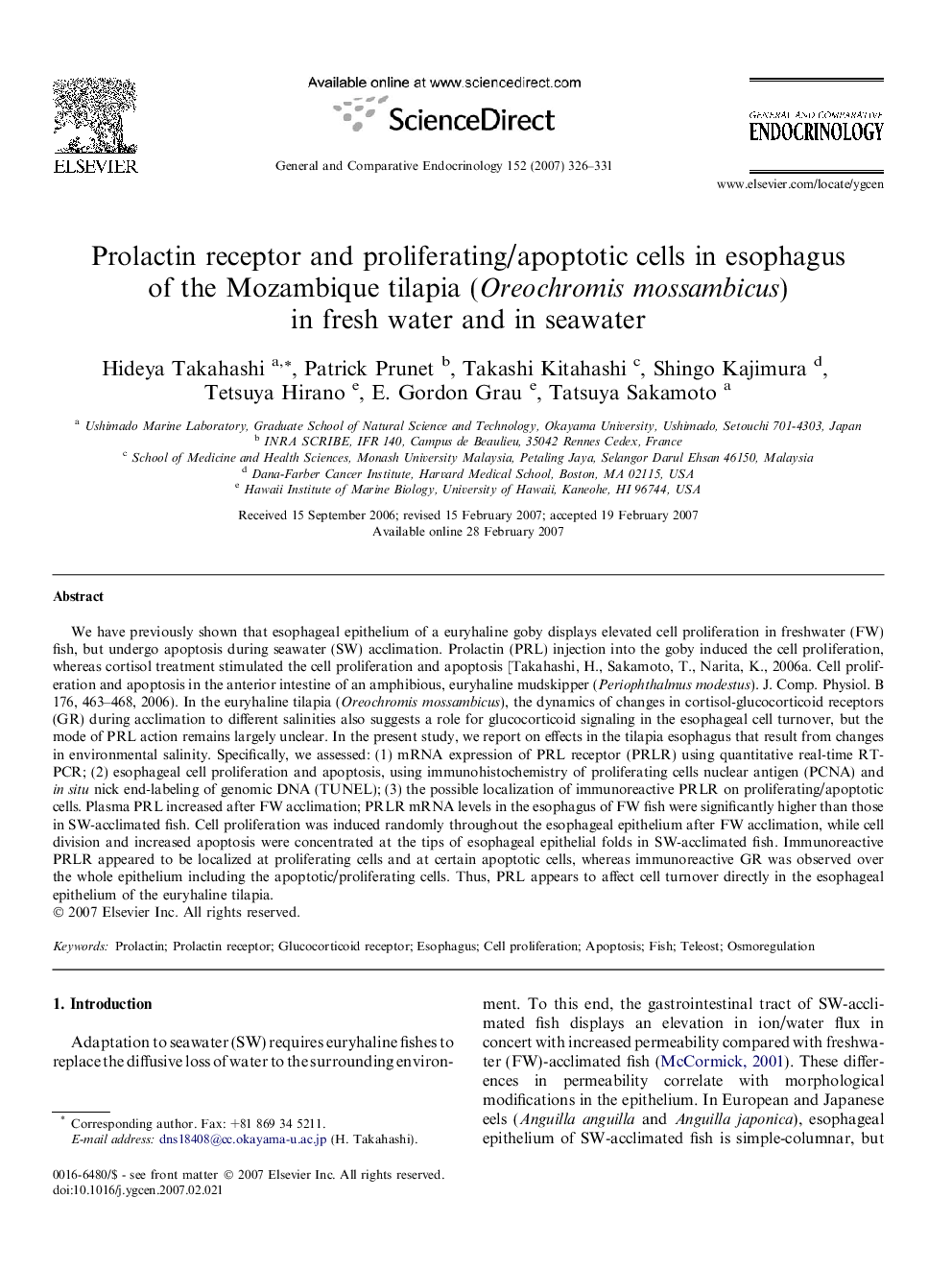| Article ID | Journal | Published Year | Pages | File Type |
|---|---|---|---|---|
| 2801965 | General and Comparative Endocrinology | 2007 | 6 Pages |
Abstract
We have previously shown that esophageal epithelium of a euryhaline goby displays elevated cell proliferation in freshwater (FW) fish, but undergo apoptosis during seawater (SW) acclimation. Prolactin (PRL) injection into the goby induced the cell proliferation, whereas cortisol treatment stimulated the cell proliferation and apoptosis [Takahashi, H., Sakamoto, T., Narita, K., 2006a. Cell proliferation and apoptosis in the anterior intestine of an amphibious, euryhaline mudskipper (Periophthalmus modestus). J. Comp. Physiol. B 176, 463-468, 2006). In the euryhaline tilapia (Oreochromis mossambicus), the dynamics of changes in cortisol-glucocorticoid receptors (GR) during acclimation to different salinities also suggests a role for glucocorticoid signaling in the esophageal cell turnover, but the mode of PRL action remains largely unclear. In the present study, we report on effects in the tilapia esophagus that result from changes in environmental salinity. Specifically, we assessed: (1) mRNA expression of PRL receptor (PRLR) using quantitative real-time RT-PCR; (2) esophageal cell proliferation and apoptosis, using immunohistochemistry of proliferating cells nuclear antigen (PCNA) and in situ nick end-labeling of genomic DNA (TUNEL); (3) the possible localization of immunoreactive PRLR on proliferating/apoptotic cells. Plasma PRL increased after FW acclimation; PRLR mRNA levels in the esophagus of FW fish were significantly higher than those in SW-acclimated fish. Cell proliferation was induced randomly throughout the esophageal epithelium after FW acclimation, while cell division and increased apoptosis were concentrated at the tips of esophageal epithelial folds in SW-acclimated fish. Immunoreactive PRLR appeared to be localized at proliferating cells and at certain apoptotic cells, whereas immunoreactive GR was observed over the whole epithelium including the apoptotic/proliferating cells. Thus, PRL appears to affect cell turnover directly in the esophageal epithelium of the euryhaline tilapia.
Keywords
Related Topics
Life Sciences
Biochemistry, Genetics and Molecular Biology
Endocrinology
Authors
Hideya Takahashi, Patrick Prunet, Takashi Kitahashi, Shingo Kajimura, Tetsuya Hirano, E. Gordon Grau, Tatsuya Sakamoto,
